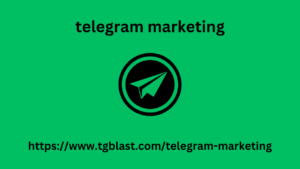Today’s topic: what’s next for creative in advertising? The media is becoming more fragmented and destroyed. Virtually all social media sites, except LinkedIn, have switched to the content graph introduced by Tik Tok.
The previously applicable social graph told the algorithm: show the user what the people around them like — the people important to them. The content graph frees itself from this limitation and serves us what we react to, what directs our attention and keeps us glued to the screen.
The second force changing advertising creation will be generative AI, allowing us to create hundreds of creative variants that can be tailored to different consumer needs and preferences.
Content graph + AI is a powerful cocktail that I think will generate more ideas than today’s cover story. Nutter Butter is an example telegram marketing of a very bold, psychedelic and downright terrifying form of communication. It is this disturbing nature of Nutter Butter ads that has given them a viral explosion on TikTok.
I don’t know what will happen next with the creation, but it will definitely get weirder.
Contents:
- Nutter Butter goes psychedelic
- Mondelēz to Use AI to Personalize Content
- Meta shows off his glasses
- Google will penalize companies for fake reviews
- Influencers face growing virtual competition
- Nespresso promotes recycling
- Lego teaches kids to play games
- Zs are tolerant of advertising
- Christmas records online
- Party City cuts prices before the holidays
- Travel back in time with Google Earth
- AI Art Museum Coming to LA
- Shorts
- Weekly Tool
- Knowledge from the blog
Nutter Butter goes psychedelic
Nutter Butter, a biscuit brand owned by Nabisco, which is owned by Mondelēz, is making waves on TikTok.
The brand’s profile is filled with low-budget productions (mainly animations with a touch of live action) in a psychedelic-dreamy style. Until recently, they attracted a small group of connoisseurs. The plot took a turn when TikTok “nano-influencer” Cassie Fitzwater expressed “concern” about the content published on Nutter Butter’s channel in one of her recordings.
In a rather unexpected way, the post “clicked.” “One video pointing to our account got thousands of reactions,” Zach Poczekaj, senior social media manager at Dentsu Creative who runs Nutter Butter, told Ad Age in a commentary.
The brand obviously didn’t let the opportunity slip. Nutter Butter’s account quickly responded to Fitzwater’s video. The post has already racked up seventeen and a half million views and over a million likes, and the brand’s subsequent videos have seen much more traffic than older productions. Other nano-influencers have also taken advantage of the hype, offering their two cents on the subject and further boosting the brand’s reach.
Mondelēz to Use AI to Personalize Content
Mondelēz (formerly Kraft Foods), a global food company also operating in Poland, will use artificial intelligence to improve its marketing activities.
The company announced the launch of an AI platform, created in cooperation with Accenture and Publicis Groupe. The tool is to facilitate the creation of personalized content: texts, graphics and video materials. It will also help the company more effectively develop the image of individual brands, taking into account changing preferences and interests of consumers.
The giant has committed to using AI responsibly, ethically, and legally. To start, the company plans to provide employees with proper training.
Meta shows off his glasses
Meta boasted “the most advanced AR glasses ever created.”
The device, called Orion, combines the look and feel of regular glasses with the immersive capabilities of augmented reality. Specifically, it displays digital content against the backdrop of physical world objects.
The device is powered by conversational AI and image recognition technology, so users can ask the AI assistant to identify an item (e.g. a basket of strawberries) and tell it what to make with it (e.g. a smoothie).
On the hardware side, the Orion glasses feature Micro LED projectors and silicon carbide lenses for durability, lightness, and high image quality. The prototype was made available to Meta employees and “select external partners.”
In an Instagram Q&A, Andrew Bosworth, CTO at Meta and head of Reality Labs (ex-Oculus, Meta’s VR goggle design subsidiary), confirmed that a complete guide to kansas city commercial AR glasses (and under a different name) will hit the market before the end of the decade. So there’s plenty of time for any potential improvements.
Google will penalize companies for fake reviews
Google is introducing sanctions for companies that seek to improve their reputation through irregular methods.
These are violations of the rules regarding false commitment.
Companies that use financial incentives to influence customer reviews or attempt to discourage customers from posting negative reviews face consequences that include:
- temporary restrictions on adding opinions and ratings,
- temporary withdrawal of existing opinions and ratings,
- placing information on the company’s Google Maps profile for consumers about the removal of false reviews.
The new rules apply globally, although The Verge reports that fake review warnings are only displayed to users in the UK for now.
Google does not explain how it intends to verify the authenticity of reviews.
Theoretically, the image risk should discourage most interested parties from using fake reviews. The question is whether it will inspire some of them to slam the competition.
Influencers face growing virtual competition
You don’t have to exist to be an influencer.
More and more companies are using digital avatars to maintain relationships with users and build brand awareness, according to a report by analytics firm PitchBook.
Dior, Calvin Klein and BMW have all created their own canada data virtual celebrities. Some brands have done quite well with their creations. Lil Miquela, a character created by the last of the aforementioned brands, has 2.5 million followers on Instagram.
Such investments can pay off. According to an April Sprout Social survey, nearly half of respondents rely on influencer recommendations when making purchasing decisions.
Customers trust and distrust digital influencers to the same extent (37% accept them, the same number reject them). However, avatars are not as demanding or expensive as their real-life counterparts.
As PitchBook experts note, virtual celebrities “are not subject to physical or legal limitations, do not benefit from limited working hours, and do not belong to labor unions.” In addition, the quality of their “work” will increase with the development of artificial intelligence models.

